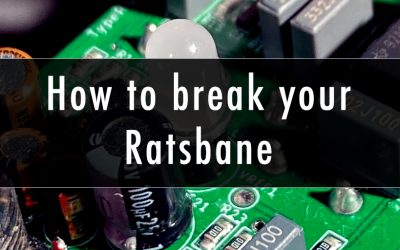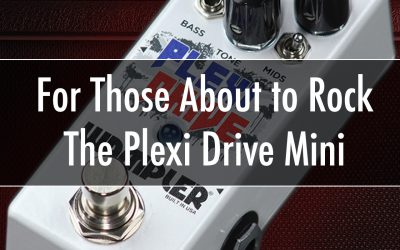This week I wanted to take some time and talk about A.C./ D.C. (Alternating Current and Direct Current – not about one of the arguably best rock bands of all time.) Frequently I have customers ask me about what kind of power supplies they should use to power their pedals. While there are several great options out there – I wanted to just go over a few of our favorite options here at the shop.
Most pedals run off of a 9 Volt battery/ power supply. Most all of your off-the-shelf batteries will power up your pedals just fine with 9 Volt D.C. power. While most all of your off-the-shelf 9 Volt batteries are very close to providing 9 volts, not all of those batteries will register a perfect 9 volts when tested with a multi-meter. If you test a 9 volt battery with a multi-meter your battery might read anywhere from 8.5-9.4 volts (give or take). Your pedal’s tone can sometimes fluctuate depending on how much power that pedal is receiving. Dirt pedals with weaker batteries can often sound muddier or have a weaker output. Delay, reverb, compressors, and some other types of non-dirt pedals will actually start clipping and will often times sound bad. Depending on your rig/ setup – this tone can some times be desirable to certain players. Wah pedal often fall under the same category. Many players claim that slightly weaker batteries produce a sweater tone. Recently, I tested this theory with a 9-volt battery from a smoke detector (I replaced the old smoke detector battery with a new one). I’m happy to report that it did in fact change the tone for the better!! While some pedals work better with drained batteries some pedals need a full charge or better yet a dedicated power supply – most often times modulation pedals, like delay pedals, fall under this category. Many fuzz pedals fall under this category as well and will sound different, often times better, with a lower level of power from a weaker battery.
A One-Spot or a Daisy-Chain type power supply is often a great option for smaller pedal boards or players that are on a limited budget. If you are looking for a lightweight option to power only a couple pedals, these types of power supplies will do the trick. A Daisy Chain type of power supply provides several D.C. barrel adapters on a single string of wire to provide your pedals with power. This will cut down on your need for remembering batteries at a gig. Because of this uninterrupted power flow, sometimes certain types of pedals will not “play nice together”. Some delays and some dirt pedals with these types of power supplies will create ground loops/ unwanted hum and other potentially annoying signal interference in your rig.
Another popular option, and one of my personal favorites, is an isolated power supply. Isolated power supplies are made by several companies and greatly range in price. ISO power supplies, like Voodoo Labs, are often times heavier, larger, and more expensive. However, with a dedicated/ isolated power supply provided for each pedal, a player can effectively eliminate any unwanted ground-hum noise that may occur. (Like a bar with a hundred neon signs). Although some ground noise my still come through on occasions, a lot of it is taken care of. Most of these types of power supplies will regulate the current going in to your pedal at a nearly perfect 9 Volts. However, some isolated power supplies will have dip-switches that will allow you to “sag” your power to certain pedals to allow you to achieve that dead battery tone that some players have come to love.
So which option will work best for you? If budget allows and you have room on your pedal board – I personally think an isolated power supply, like a Voodoo Labs, is the way to go. But if space, weight, or budget is an issue there is absolutely nothing wrong with a Daisy chain/ One-Spot style power supply or even a good old-fashion store bought 9 Volt batteries. You be the judge!
– Max Jeffrey



0 Comments